By THE INDEPENDENT UG
BEIJING | Xinhua | The following are the top 10 world news events in the year 2023 selected by Xinhua in a chronological order:
1. Generative AI accelerates industrial transformation
The number of monthly active users of ChatGPT, an artificial intelligence (AI) chatbot, reached 100 million in January. Generative AI represented by ChatGPT is developing rapidly, and this revolutionary tool excels in solving tasks such as content creation.
Tech giants from multiple countries are competing to pour investment into AI research and development and accelerate the integration of their products with AI applications. As an important driving force for a new round of technological revolution and industrial transformation, AI brings huge opportunities and is expected to accelerate the reshaping of multiple industries. At the same time, it is accompanied by unpredictable risks and challenges.
China has put forward the Global AI Governance Initiative to provide Chinese solutions for the global AI governance.

2. Devastating earthquakes in Türkiye and Syria cause heavy casualties
A 7.7-magnitude earthquake on Feb. 6 struck the southern region of Türkiye near the Syrian border, followed by continuous aftershocks.
The disaster caused more than 50,000 deaths in Türkiye and more than 1,000 deaths in Syria. Morocco, Afghanistan, Nepal and other countries have also been hit by powerful earthquakes this year, which caused severe losses of life and property damage.
China immediately dispatched a rescue team to Türkiye after the earthquake, trying its best to save lives, and provided emergency humanitarian assistance to disaster-stricken countries multiple times, which is a testament to the notion of building a community with a shared future for mankind.
Chinese and Turkish rescuers transfer an earthquake survivor in Antakya in the southern province of Hatay, Türkiye, Feb. 12, 2023. (Mustafa Kaya/Handout via Xinhua)
3. Saudi-Iran deal brokered by China spurs reconciliation wave in the Middle East
With China’s mediation, Saudi Arabia and Iran reached a groundbreaking agreement in Beijing on March 10 to resume diplomatic relations that had been severed for seven years. In April, the two countries formally resumed diplomatic ties.
The two countries shook hands and made peace, catalysing reconciliation among many countries in the Middle East. In the following months, Syria has rejoined the Arab League, and Egypt and Türkiye have restored ambassador-level diplomatic relations. Additionally, the United Arab Emirates (UAE), Bahrain, and other countries have taken steps towards normalizing their relations with Qatar.
The momentum of easing tensions and seeking development and cooperation among regional countries indicates that resolving conflicts and differences through dialogue and consultation aligns with the aspirations of the people, conforms to the trend of the times, and serves the interests of all nations.

4. “De-risking” exacerbates global economic predicament
In March, some Western politicians came up with the concept of “de-risking,” extending the underlying logic of “decoupling” and the “small yard, high fence” doctrine. This goes against economic laws and historical development trends, essentially rejecting opportunities, cooperation, stability and development.
Currently, the world economy faces multiple challenges which thwart the recovery process. The Federal Reserve’s continued aggressive interest rate hikes have sharply increased risks in American and European banking sectors, leading to deteriorating global liquidity and rising default risks in emerging economies.
The United States has been persistently advancing protectionist industrial policies such as the Inflation Reduction Act and the CHIPS and Science Act, causing other developed countries to follow suit, destabilizing international production and supply chains. The politicization and weaponization of economic and trade issues by the United States and some other Western countries are disrupting global markets and exacerbating the world’s economic plight.
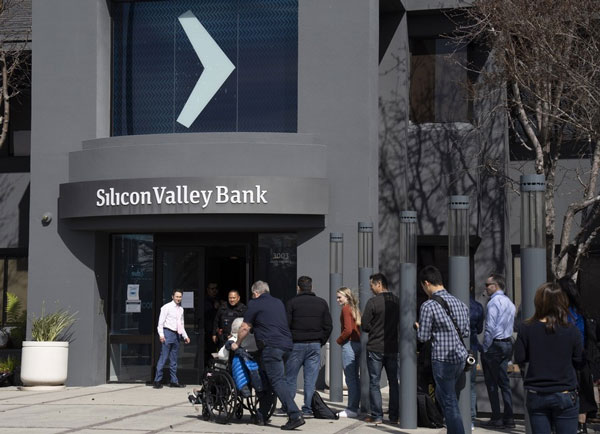
5. The Global South’s resounding support for multilateralism
On Aug. 24, the BRICS cooperation mechanism witnessed a historic expansion as countries including Saudi Arabia, Egypt, the UAE, Iran and Ethiopia were invited to join the BRICS family.
On Sept. 9, the African Union was invited to officially become a member of the G20.
Currently, the strength of developing countries is continuously growing, and the collective rise of the Global South has become an irreversible trend. The call and desire for unity, coordination and collaborative development have never been stronger.
As the largest developing country, China is a natural member of the Global South, firmly safeguarding the common interests of developing countries and promoting increased representation and voice of emerging market economies and developing countries in global affairs.
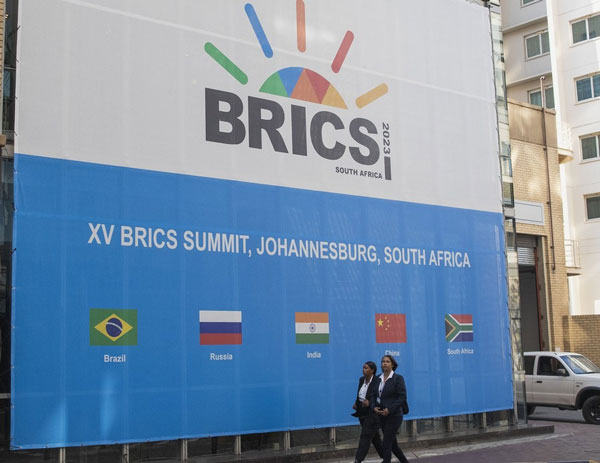
6. Japan discharges nuclear-contaminated water amid opposition
On Aug. 24, Japan started discharging contaminated water from the Fukushima nuclear incident, despite widespread international questioning and strong objections from concerned nations.
Japan released more than 23,000 tons of nuclear-contaminated water in three rounds of discharge in the year. The entire discharge will take at least 30 years to finish. This unprecedented release of nuclear-contaminated water into the ocean and the potential cumulative marine effects have triggered widespread concern worldwide.
The discharge, which is by no means a private matter for Japan, involves the health of all humanity, the global marine environment and global public interests. Japan should seriously address the legitimate concerns both at home and abroad, and handle the Fukushima nuclear wastewater issue responsibly and constructively.
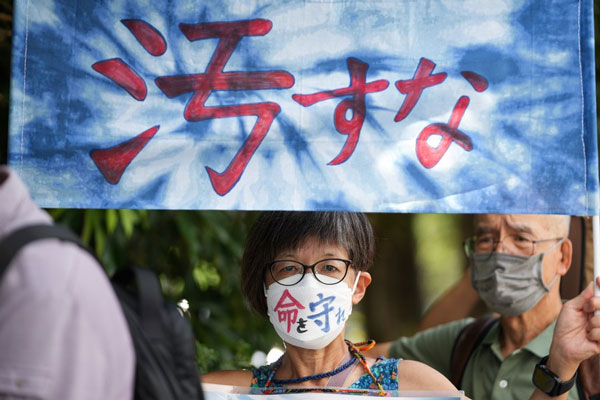
7. Israeli-Palestinian conflict highlights intensifying turbulence globally
On Oct. 7, a new round of conflict erupted between Israel and Palestine.
Over the past two months, the conflict has resulted in the deaths of more than 20,000 Palestinians, leading to a severe humanitarian crisis. More than 1,000 Israelis have also lost their lives.
The international call for the protection of civilians and a cessation of hostilities keeps growing. The fundamental solution to the frequent recurrence of the Israeli-Palestinian conflict lies in implementing the two-state solution, restoring the legitimate rights of the Palestinian people, and establishing an independent Palestinian state.
Since the beginning of this year, the Ukraine crisis has dragged on, armed conflicts have broken out in Sudan, and coups have taken place in Niger and Gabon. Local conflicts and regional hot spots keep flaring up, and the international situation is becoming more volatile.

8. High-quality Belt and Road cooperation opens new chapter
On Oct. 18, the successful convening of the Third Belt and Road Forum for International Cooperation marked a significant milestone. Chinese President Xi Jinping delivered a keynote speech at the opening ceremony, announcing eight major steps to support high-quality Belt and Road cooperation.
This declaration has set a new direction for, opened up a new vision of, and injected new momentum into the Belt and Road cooperation. Over the past decade, more than 150 countries and over 30 international organizations have signed relevant cooperation agreements. Numerous projects have taken root, opening a path toward shared development, cooperation, opportunities and prosperity. The Belt and Road Initiative has become one of the world’s most popular international public goods and the largest-scale platform for international cooperation.
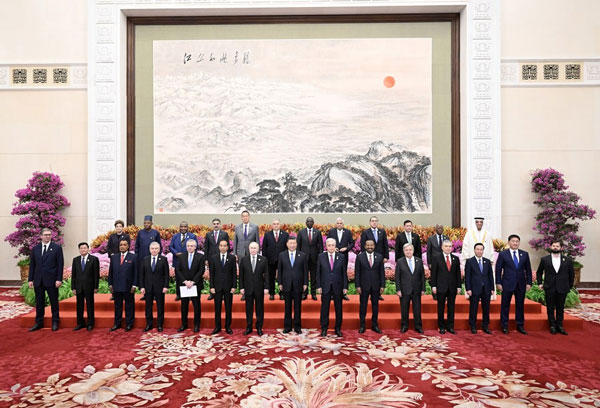
9. Xiplomacy writes new chapter for Chinese diplomacy
On Nov. 15, Chinese President Xi Jinping met with U.S. President Joe Biden in San Francisco, charting the forward-looking San Francisco vision.
In this year, Xi paid a state visit to Russia, chaired the first China-Central Asia Summit, attended the BRICS leaders’ meeting in South Africa and paid a state visit to the African country, participated in the APEC Economic Leaders’ Meeting in San Francisco, conducted a state visit to Vietnam, held talks with and sent messages and letters to leaders of various countries and international organizations, and wrote letters and reply letters to youths and friendly people from various countries.
Under the guidance of Xi Jinping Thought on Diplomacy, China’s distinctive major country diplomacy continues to advance on a new journey, having substantially promoted the Global Development Initiative, the Global Security Initiative, and the Global Civilization Initiative. This ongoing effort has injected strong impetus into the building of a community with a shared future for mankind.
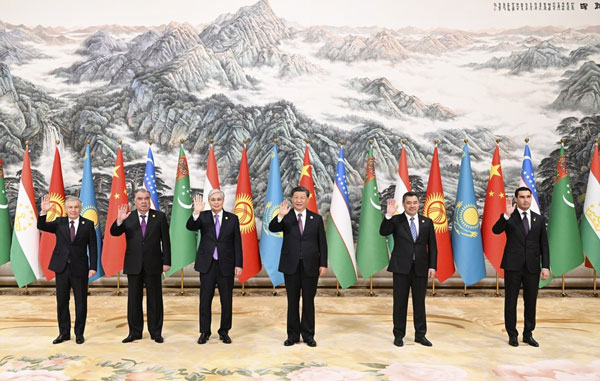
10. Climate change intensifies threat to global sustainable development
On Nov. 30, the World Meteorological Organization announced that 2023 is the hottest year on record.
Climate change has exacerbated disasters such as flooding in Libya and the deadliest wildfires in Hawaii. Extreme weather events like summer heatwaves have become the new normal, impacting global economic and social development. Almost all sustainable development goals are being compromised.
“The era of global warming has ended; the era of global boiling has arrived,” said UN Secretary-General Antonio Guterres.
The UN Climate Change Conference in Dubai reached the UAE Consensus on various issues, including the first global assessment of the Paris Agreement, loss and damage, and just transition, sending a strong signal that all parties should accelerate joint action.
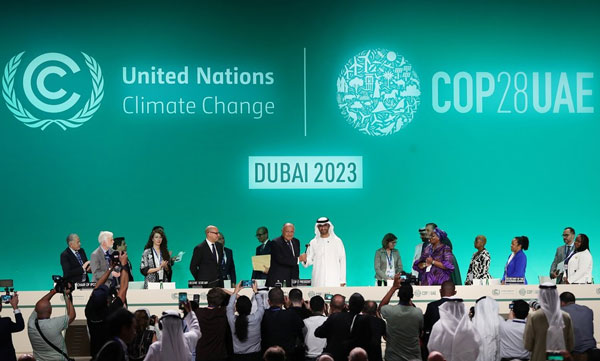
(Video editor: Zhou Saang, Wu Long, Liu Xiaorui, Wu You, Lin Lin)■




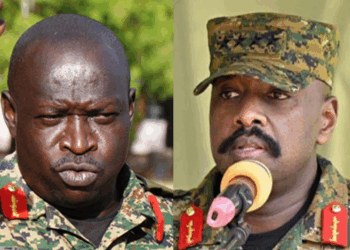


Discussion about this post